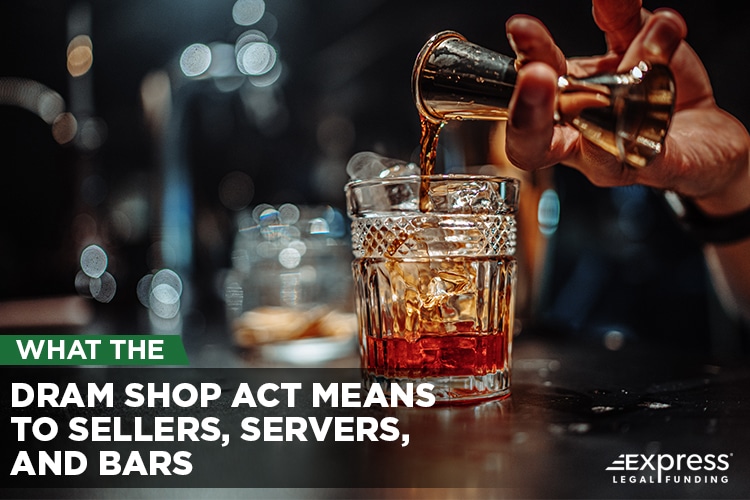
Accountability is an integral part of society and should be equally attributed among us. However, sometimes the distribution of accountability is not as comprehensive as it should be. You can find alcohol being served in countless restaurants, bars, and clubs across the nation.
The price for alcoholic beverages can range from only a dollar to hundreds of dollars. The costs often depend more on the location or type of establishment than the service of the alcohol.
Yet, one common denominator between the establishments that serve alcohol is that the actions of an intoxicated person that they served too much alcohol can be dangerous or even lethal as a drunk driver.
This, unfortunately, is a real problem and can lead to drunk driving accidents. So nearly every state legislature has passed the Dram Shop Act to hold drinking establishments liable for overserving alcohol to patrons.
So whether you own a bar or work there as a bartender, it is crucial to learn what the Dram Shop Act is to defines as overserving alcohol for sellers and servers.
We aim to answer your questions and give you insight into how Dram Shop Laws pertain to places that sell and serve alcohol. So let’s begin!
What is the Dram Shop Act?
We first need to understand what precisely the Dram Shop Act entails before fully understanding how it affects the people involved.
The Dram Shop Act is simply a broad term that denotes state statutes (state laws) that have the Dram Shop liability laws.
Certain states enforce these laws to ensure that you can hold the actions of intoxicated patrons accountable against the establishments that enabled their reckless behavior.
In all states, the liable party can be held responsible when an intoxicated person causes a motor vehicle accident, which can lead to severe injury or even death.
In the case of Dram Shop liability laws, it means that when a patron is responsible for a car accident collision or injures someone while intoxicated, the establishment that overserves can also be held accountable for the harm caused to the accident victim.
Essentially, Dram Shop liability laws make it so that establishments that continue serving alcohol to intoxicated patrons or for the service of alcohol to those below the drinking age can be held liable.
That means they can be sued for injuries and damages in civil lawsuits for the harm caused to victims of drunk driving accidents.
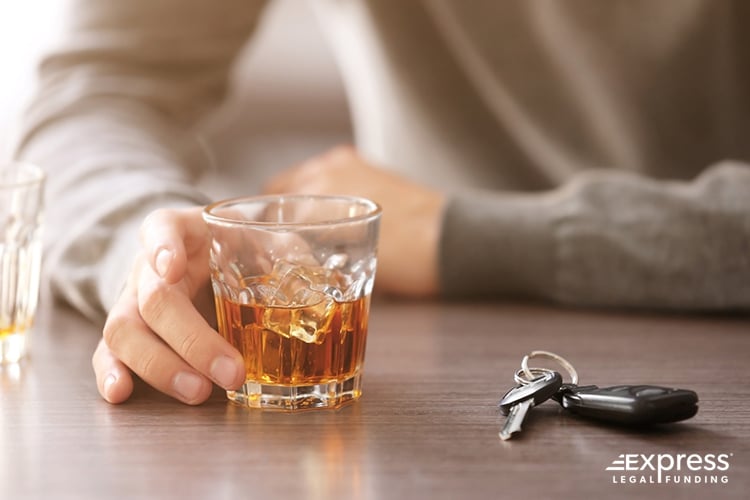
However, Dram Shop liability is not a federally mandated policy and is only present in specific states. Fortunately, states that lack these dram shop liability laws are in the minority.
Dram Shop Law Are Established in the Following States:
Alabama, Alaska, Arizona, Arkansas, California, Colorado, Connecticut, Florida, Georgia, Hawaii, Idaho, Illinois, Indiana, Iowa, Kentucky, Maine, Massachusetts, Michigan, Minnesota, Mississippi, Missouri, Montana, New Hampshire, New Jersey, New Mexico, New York, North Carolina, North Dakota, Ohio, Oklahoma, Oregon, Pennsylvania, Rhode Island, South Carolina, Tennessee, Texas, Utah, Vermont, Washington, West Virginia, Wisconsin, Wyoming
The States That Do Not Have Dram Shop Statutes:
- Delaware
- Kansas
- Louisiana
- Maryland
- Nebraska
- Nevada
- South Dakota
- Virginia
Aside from these few states, the rest of the country actively participates in the Dram Shop Act to maintain a higher degree of accountability for everyone involved in drunk driving accidents.
However, there are differences between how each state enforces these laws and what qualifies as violations. Specifically, the qualifiers for what denotes a patron whose continued consumption of alcohol under a vendor’s auspices presents a danger vary from state to state.
Dram Shop Act and the Federal Drinking Age
One of the mainstays of the Dram Shop Act is that an establishment must not serve alcohol if the patron is under the federal drinking age of 21. This invariable law is applicable across the country, even in states that do not enforce the Dram Shop Act.
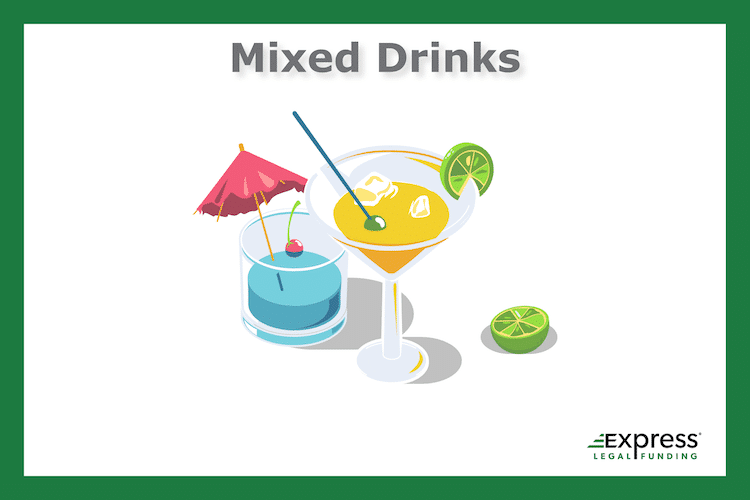
Since the intoxication of a minor is highly illegal, even establishments in states like Louisiana or Delaware risk losing their ability to serve alcohol if they are found to be serving underage customers.
It’s the responsibility of these establishments to check IDs and verify their proof of age before the sale of alcohol takes place.
What Does Visible Intoxication Mean in Dram Shop Law?
Besides the act of serving alcohol, there is a major qualifier that is more open to interpretation. That is, if an establishment serves a “visibly intoxicated patron,” they risk being subject to the Dram Shop Act.
However, what qualifies as “visible intoxication” has slight variances in meaning from one state to another.
For example, in Missouri, the definition of being visibly intoxicated is a patron being:
“Inebriated to such an extent that the impairment is shown by significantly uncoordinated physical action or significant physical dysfunction.”
This definition means the bartender will determine if the patron is past the limit based on whether they are stumbling or slurring their speech.
Should an establishment patron meet any of these criteria, be served alcohol, and then cause a collision, the Dram Shop Act holds the establishment liable.
The victims of drunk driving accidents can file personal injury claims against both the driver and the establishment to recover their medical costs and property damages.
However, in most states and jurisdictions, the injured person is not likely to get compensated for punitive damages, which is the case with Texas Dram Shop Laws.
Granted, it will need to be proven that the establishment negligently served alcohol to the driver and was explicitly responsible for being intoxicated enough to cause the collision.
However, the Dram Shop Act requires that negligence be proven to ensure false claims are not filed.
What Dram Shop Liability Laws Mean For Bars?
A vendor of alcohol provides a service to consenting adults who wish to enjoy alcoholic beverages. However, since the human body cannot reliably function when exposed to an excess of alcohol, it is easy to lose control of its faculties.
The vendors of alcohol might be offering their services to consenting adults.
Still, classic drinking establishments, like bars, have an unspoken understanding that some customers need to be cut off before they get too drunk. Since Dram shop laws are designed to provide a legal basis for this unspoken rule, the vendors are more accountable than ever before.
Can a Bar Lose its License for Overserving?
Yes, bars must watch their customers for signs of intoxication, as they can lose their liquor license or run into trouble with the law for overserving their patrons.
The Dram Shop Act allows victims of motor vehicle collisions to seek legal restitution against the drunk driver and the bar that enabled their intoxicated state. This ability means that bars, taverns, at restaurants can face legal claims filed by the victims left behind by their patrons.
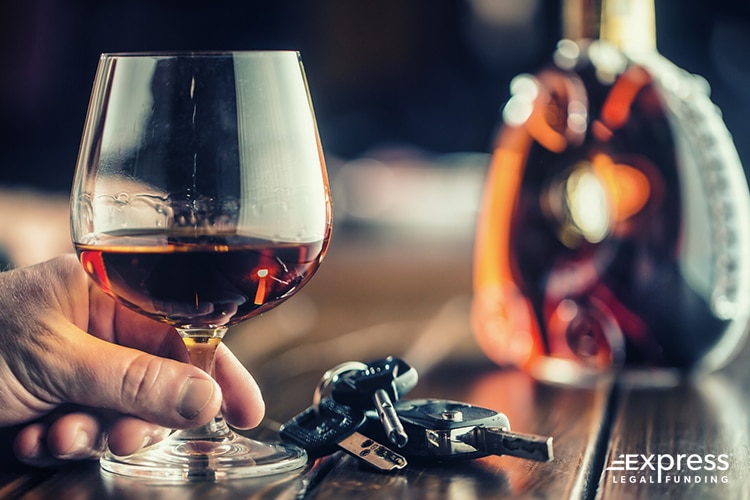
This process makes it essential for these particular vendors to inform their staff to be aware of their clientele’s ages and level of intoxication. If their employees are found to negligently overserve a patron, the victim of the collision’s claim against the establishment’s owners is more likely to succeed.
That said, it is worth noting that the odds of a claim being successfully filed against a bar or restaurant are less likely if they made reasonable efforts to prevent the patron from operating a vehicle or from overserving.
Unfortunately, the reality is that, short of refusing to continue serving an intoxicated client, the only thing the establishment has the power to do is contact law enforcement, especially since there is no law allowing them to confiscate keys from customers.
Additionally, the ability to file a viable civil lawsuit against the establishment for overserving alcoholic beverages is next to none if the patron was never intoxicated. However, a bar or restaurant that offers alcohol is not the only one subject to this kind of claim.
What Do Dram Shop Laws Mean For Sellers?
Restaurants and bars are far from the only commercial establishments offering alcohol that can fall under Dram Shop Laws. There are also countless liquor stores across the country.
Unlike bars, which need to ensure that they cut off their customers who are actively imbibing alcohol, liquor stores only vend closed containers and do not allow the consumption of their products within the store itself.
These retailers are also subject to a degree of liability under the Dram Shop Act, albeit to a much lesser extent than bars or restaurants would be.

This lack of in-house drinking means that there is no way for a liquor store to monitor the rate of consumption for their customers.
Are Liquor Stores Liable for Selling to Underage or Visibly Intoxicated Customers?
The only thing a liquor store can effectively monitor is their customers’ level of intoxication and ages before selling them any bottles of alcohol.
Therefore, if a customer comes in who is visibly intoxicated or below the legal age and the liquor store sells alcohol to them, which they consume and then causes a car accident, dram shop liability laws are a factor.
Like bars and restaurants, it needs to be proven that the alcohol sold by the particular store was the product that put the driver over the edge and made them a threat to those around them.
Without proof of fault and negligence, there is no basis for the claim. However, if you can prove it, the suit has a greater chance of success.
In summation, the only difference is that the Dram Shop Act only applies to customers who became intoxicated or further intoxicated outside the borders of the establishment rather than within it.
What Does the Dram Shop Act Mean For Servers?
Let us start by examining the role of a server in a commercial establishment. This particular detail has a two-pronged meaning depending on the specific circumstances of the server. However, in most circumstances, the servers under the Dram Shop Act will be bartenders and waiters.
Are Bartenders Responsible Not to Serve Someone Intoxicated or Underage?
Yes, in commercial establishments like bars and restaurants, servers like bartenders and waiters are responsible for determining if a patron is too intoxicated (or is underage) to consume alcohol safely.
They are also expected to prevent an intoxicated patron from operating a motor vehicle if they present a clear danger.
However, they have limited power and can only contact the authorities to prevent a patron from driving under the influence forcibly.
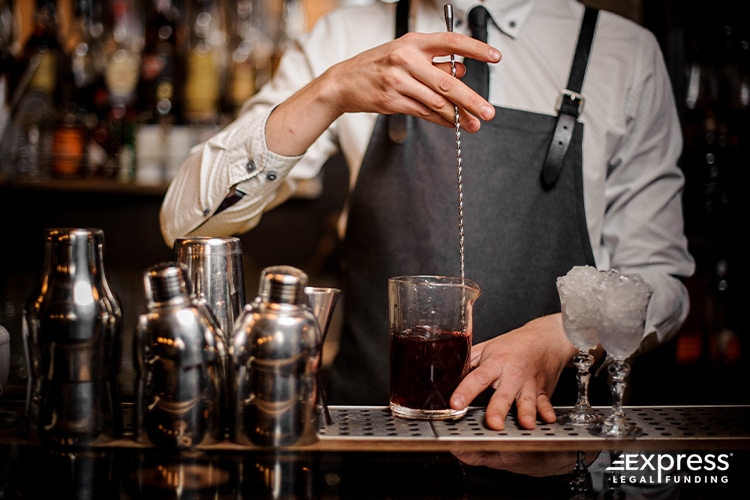
In commercial establishments, the server cannot be sued under the Dram Shop Act by the victim. The victim can only file suit against the establishment the server works for.
However, this does not mean that the server is free from responsibility or accountability.
For example, suppose a server is found to have neglected their duties of evaluating a customer. In that case, they will likely face disciplinary action from their employer, which can be a legally allowed consequence for their negligence.
For the most part, that is the extent of the implications of the server’s role in the Dram Shop Act. This limitation is only applicable to commercial employees, though.
Another type of server is not commercial and does not have to answer an employer when serving alcohol. This type of server is the one you find in the privacy of domestic residences like apartments and houses.
However, these servers do not directly fall under the Dram Shop Act and fall under the auspices of social host liability.
The laws regarding social host liability are similar to those that regulate the dram shop liability laws. The critical difference is that you would file a civil liability claim against the homeowner who served the alcohol.
Like the Dram Shop Act, social host liability is equally limited by state legislation, so not every state will enable you to file a claim against a homeowner for negligently serving alcohol.
However, those that do will likely rely on enforcing the Dram Shop Act in earnest when possible.
Closing Statements on Dram Shop Laws for Sellers and Servers
Unfortunately, the Dram Shop Act is not a state statute in all 50 US states. Still, most states enforce it, with only Louisiana actively fighting it.
However, those states where the legislature passed the Dram Shop Act enable victims of drunk drivers responsible for those car accidents to also hold the drinking establishments and liquor stores liable for their negligence.
The claims are built on how the establishments enabled an intoxicated person to operate a motor vehicle and the subsequent drunk driving accident.
These liability laws are designed to discourage establishments from enabling intoxicated individuals and allow another way for the victims to get financially compensated for their loss.
If you live in one of the states that enforce Dram Shop laws, you can have an easier time recouping your injuries and damages by having another party that you can sue.
From a legal perspective, the best place to begin for a victim of a drunk driving accident that involved a bar or restaurant is to get legal advice from a Dram Shop lawyer.
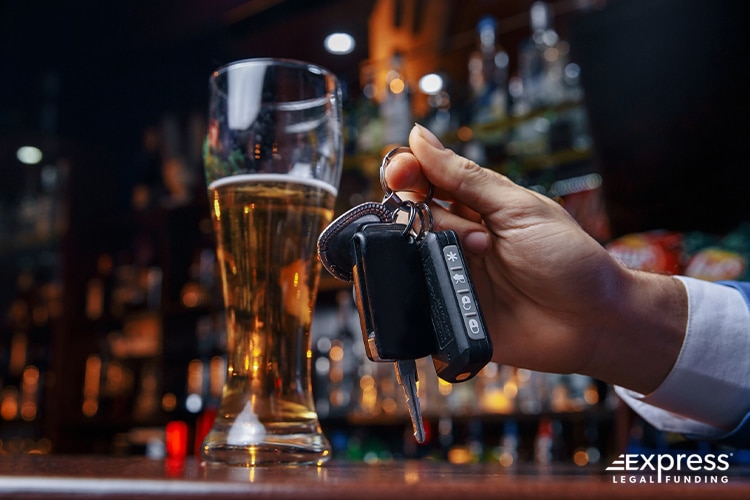
Regardless of Dram Shop laws, personal injury claims that involve drunk drivers are very costly, as they place you in a position where you must pay for your medical costs, prescribed medicines, and the increasing cost of daily living.
This burden can quickly become financially overwhelming, depending on your circumstances.
Fortunately, plaintiffs who hired lawyers on a contingency fee basis can apply for pre-settlement funding to make the costs more manageable in the meantime.
The legal funding service involves a company providing you with funds to use for essentials while you wait for your Dram Shop case to be settled or won.
We at Express Legal Funding are a company that can provide pre-settlement funding to people with Dram Shop claims. So they can have some money now to help with their bills and later when their case successfully ends.
In most states, the money is advanced as a non-recourse cash advance and is not a loan.
That makes it risk-free because the repayment comes from your case proceeds and not out of your own pocket. The funds are repaid to us, the pre-settlement funding company, from a portion of your final lawsuit settlement or trial award, and that is only sent out when the settlement check gets dispersed.
(It is important to note that the money we can provide to injured and damaged plaintiffs in Missouri is a recourse loan and, therefore, not risk-free advances with the lien on the case proceeds.
Pre-settlement loans in states like Missouri are loans and must, technically by law, be repaid regardless of the claim outcome. Express Legal Funding-Missouri, LLC is licensed to give these loans in MO.)
If legal funding sounds like a financial option that may be helpful to you during a Dram Shop claim, or want to learn more about the financial services we provide, contact us at Express Legal Funding today!
